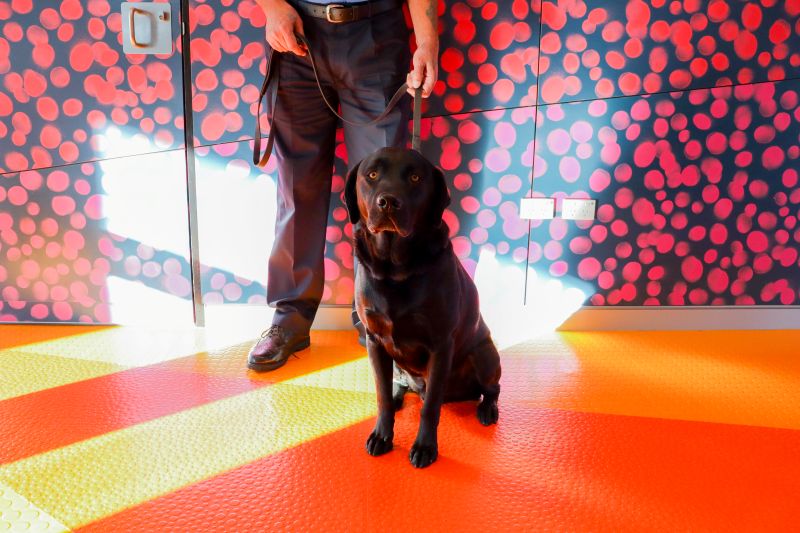
The new PAD dogs Aria and Ziggy along with veteran dog Blade, together with their respective handlers Dawn, Marie and Jack, completed an intensive 10-week training course where they learnt important skills to detect drugs and other contraband from entering the state’s prisons.
Commissioner for Corrective Services, Tony Hassall said that by using a method of repetition, reward and praise, the DDU dogs have been trained to detect a wide range of illegal drugs including methamphetamine, and have been part funded by the Government's $244.8 million, methamphetamine action plan.
"Together with their handlers, the DDU dogs play an essential role in helping maintain the safety and security of prisons, which is supported by random and targeted searches of offenders and visitors, urinalysis of offenders in custody, body scanners and other methods, including the sharing of intelligence between agencies", the Commissioner said.
All dogs used by Corrective Services are selected from the Australian Border Force dog breeding program. Once trained, the new DDU dog and handler teams are mentored by an operational dog and handler across a nine week period until they are ready to begin solo search operations at prisons.
These DDU dog teams will be deployed to Albany and Eastern Goldfields Regional Prison, as well as the metropolitan unit.
"The message is clear: there is no place for drugs in our prisons and with these new recruits we will continue searching, without fear or favour, to keep our facilities clean."
ENDS
Note to journalist:
- DDU dog teams conduct more than 5,500 search activities annually across all facilities, including prison carparks.
- Upon retirement, DDU dogs typically remain with their handler as a family pet.


